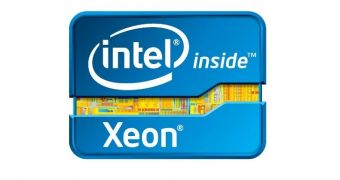Intel's central processing units are still the main technology used by data centers, most servers really, but ARM and other alternatives are gaining ground steadily. That means that Intel has to step up its game too.
We've just learned how Chipzilla will go about achieving that goal: it will offer customers something along the lines of customizable Xeon central processing units.
Technically, the Xeon CPUs will be merged with an FPGA, which is short for field-programmable gate array. They are, literally, circuits meant to be configured by a customer or designer after manufacture. Resources of logic gates and RAM blocks are used to implement complex digital computations.
By combining Xeon CPUs with FPGA, Intel is allowing its clients to configure the performance of the chips via resource allocation.
Normally, the FPGA is separate, albeit near the chip. By having them part of the same whole, however, customers will be able to share access to the memory available to the CPU.
So if, say, someone wants to build a server or data center with GPU accelerators on the side, the FPGA in the CPU will be used to give direct memory access to those accelerators, eliminating some really annoying performance bottlenecks.
It's not clear who is working on the FPGA (Intel isn't making it itself). The main names in that sector, however, are Xilinx, Altera and Latice Semiconductor, so it's safe to assume that one of them has been given the task.
The main drawback of FPGAs is their price, but Intel believes that the issue will be offset by the ability to program the CPUs to run a set of algorithms at peak efficiency. Also, they can be reprogrammed later, if the algorithm changes or is no longer needed.
As far as preemptive strikes go, the programmable Xeon-FPGA CPU might actually manage to throw a wrench in ARM's plans for expansion in the server and data center industry.
You see, the ARM architecture has been praised for its modularity, and its ability to be assembled, weaved almost, into processors that can perform specific jobs very well. Like a specialization. Intel's Xeon CPUs with FPGAs have just removed the modularity advantage.
ARM still leads in terms of efficiency though, and we wouldn't be surprised if it, too, released or outlined something new in the coming weeks. Advancements on the computing industry usually don't last long before some rival company steps forward with a counter tactic. It's like ping-pong.

 14 DAY TRIAL //
14 DAY TRIAL //